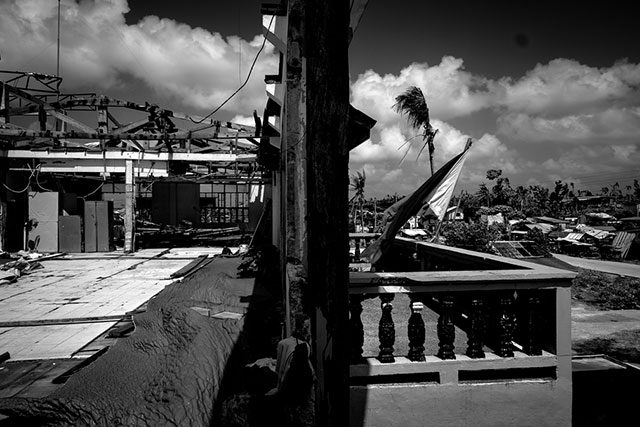SUMMARY
This is AI generated summarization, which may have errors. For context, always refer to the full article.

EASTERN SAMAR, Philippines — Like many local government units in the areas devastated by Super Typhoon Haiyan (Yolanda), Guiuan had to cope with the tragedy with whatever they had.
Immediately after the typhoon landed on November 8, 2013, the town administration worked closely with relief agencies and volunteers to provide assistance to residents.
The town’s century-old church suffered structural damage that will cost millions to repair. The participation of corporate donors will be required to bring it back to its old glory.
Business establishments suffered losses and the livelihood of residents vanished. Sources of employment have remained scarce ever since. Tourism has yet to recover.
Nickel Asia Corporation (NAC), which has a suspended nickel mining operation in Manicani Island in the area, lent its assistance to the town of Guiuan with heavy equipment and skilled operators to remove the debris and facilitate relief operations.
NAC is one of the companies identified by Panfilo Lacson, czar of the Philippine government’s rehabilitation efforts, to help in the rebuilding of devastated communities.
In Manicani Island, the mining company procured relief supplies worth millions in two shipments from local sources and transported them to Manicani within a few days after the super typhoon landed. It also assisted residents with their housing needs.
United Nations agencies are still assisting in the rehabilitation of Guiuan. Their tent city near the Eastern Samar State University will be there for a while in the absence of alternative housing.
The United Nations High Commissioner for Refugees (UNHCR) is also launching a program to provide individuals who lost their documents during the typhoon an alternative way to re-establish their identities so they can apply for work or return to school.
There are glimpses of hope.
Asked how she feels right now, Elena Projimo, 47, mother of 4, said: “We are like millionaires moving to a new and better house.”
Rick Rocamora is an award-winning documentary photographer based in California. Some of the images in this report were taken while he was on assignment for NAC for their annual report. His work, “Displaced,” was recently exhibited at the Cultural Center of the Philippines sponsored by UNHCR. Rocamora used exclusively Fuji XPRO1 cameras and lenses for this report. – Rappler.com
Add a comment
How does this make you feel?
There are no comments yet. Add your comment to start the conversation.